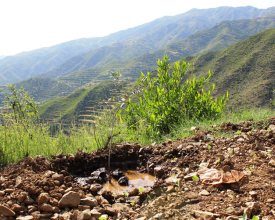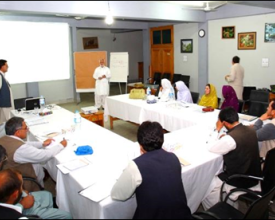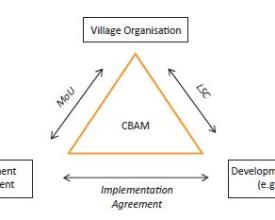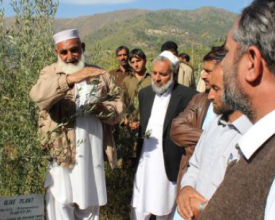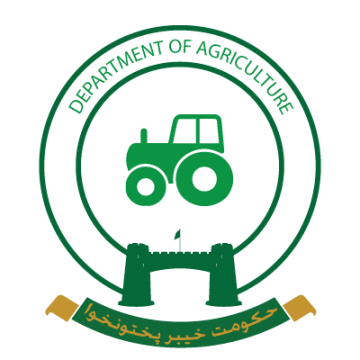
Using trees to adapt to a prolonged winter and dry season
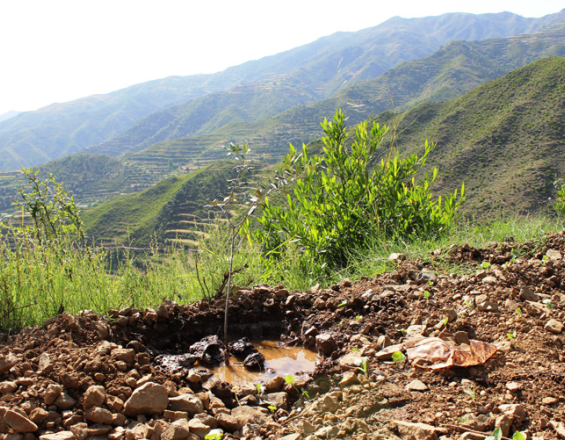
The project promoted the planting of drought-resistant olive trees. The sale of fruit generates income, thereby increasing the resilience of the local communities. The project provided planting material to, organized training on grafting and budding, and arranged an exposure visit for farmers. Furthermore, the project promoted the use of formerly unutilized mulberry fruit as livestock feed. Through training and practical demonstration farmers learned how to produce mulberry based feed-blocks.
Context
Challenges addressed
Location
Process
Summary of the process
Building Blocks
Capitalising on best practices of similar projects
Enabling factors
Lesson learned
Vulnerability assessments for integrated bottom-up planning
Enabling factors
Lesson learned
Community-based implementation of EbA measures
Enabling factors
Lesson learned
Climate-change adapted plants - Olive ssp.
Enabling factors
Lesson learned
Impacts
• The local community in Chitral has learned how to prepare Mulberry fruit based feed-block and knows its nutritional and economic value. The local community is able to use mulberry when fodder availability is lean. • The production of mulberry fruit based feed-blocks is being replicated by some farmers, and some of them have started marketing the feed-blocks in the area. • 3000 high-quality olive tree seedlings have been planted by farmers in Swat. The plantation sites are protected from grazing animals which has increased vegetation cover and has restored the habitat for the local fauna • The participation in the vulnerability assessments and the subsequent joint planning and implementation of adaptation measures increased the awareness of different stakeholders around biodiversity in general and, more specifically, around the interrelatedness of biodiversity, ecosystem services and climate change.
